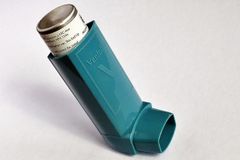What Causes Asthma? Albany’s Leading Family Care Physicians Discuss

Asthma is a chronic respiratory disease that inflames and narrows the airways in the lungs, often making it difficult to breathe. According to the Centers for Disease Control and Prevention, it affects nearly 17.7 million adults and 6.3 million children in the U.S. alone. Asthma has no known cure, the experienced family care physicians at Urgent & Primary Care explain, but there are ways you can reduce your risk of developing it. However, you must first understand the disease’s underlying causes.
5 Most Common Causes of Asthma
-
Genetics
Just because your parents, grandparents, or siblings have asthma doesn’t mean you’ll develop it too. However, because asthma links to specific genes, you may have inherited asthmatic  tendencies that put you at risk for developing the disease, if you’re not careful. Thus, individuals with a family history of asthma should avoid environmental risk factors as well as receive a lung function test every few months as recommended by their primary care doctor.
tendencies that put you at risk for developing the disease, if you’re not careful. Thus, individuals with a family history of asthma should avoid environmental risk factors as well as receive a lung function test every few months as recommended by their primary care doctor.
-
Atopy
Atopy is a syndrome characterized by hypersensitivity to common allergens like pollen, dander, and dust mites. As a result, a person with atopy typically displays one or more of the following conditions: eczema, hay fever, or allergic asthma. Atopy itself is hereditary, meaning that if someone in your direct family has it, there’s a higher risk that you will develop asthma or any combination of these atopic diseases.
-
Allergens
You don’t need to have atopy for household allergens to irritate your respiratory system. In fact, simple allergies to pollen, dander, and dust mites as well as mold and cockroaches are enough to trigger the onset of asthma. If you are unsure of whether or not you are allergic to these substances, you can request that your family care physician administers a skin prick test. The results of this screening will tell you which allergens you should avoid in the name of asthma prevention.
-
Airborne Irritants
Like household allergens, air  impurities can also irritate your lungs and cause asthma. The list of such airborne irritants is quite cumbersome, including cigarette smoke, gas emissions, smog, paint fumes, hazardous chemicals, and even heavily scented beauty products. Minimal exposure to these substances will not cause you to develop asthma. However, extended exposure can. Thus, if your occupation requires you to work near any of the above pollutants, remember to wear the proper protective gear.
impurities can also irritate your lungs and cause asthma. The list of such airborne irritants is quite cumbersome, including cigarette smoke, gas emissions, smog, paint fumes, hazardous chemicals, and even heavily scented beauty products. Minimal exposure to these substances will not cause you to develop asthma. However, extended exposure can. Thus, if your occupation requires you to work near any of the above pollutants, remember to wear the proper protective gear.
-
Obesity
Like irritants and allergens, obesity is known to cause asthmatic inflammation in the airways. Additionally, excess weight signifies a buildup of adipose tissue or fat cells that reduce basic respiratory function. While research on this topic is still relatively new, the correlation between obesity and asthma is quite strong. Thus, in the name of asthma prevention as well as overall wellness, you should always maintain a healthy weight.
It’s important to note that many of the above risk factors are also common triggers for asthmatic attacks. Thus, whether you’re trying to lessen your risk of developing asthma or you’ve already been diagnosed with the disease, you should know your family history, avoid allergens and irritants, and watch your weight.
You should also find a primary care doctor who is knowledgeable about the subject, like those at Urgent & Primary Care. With their combined training and expertise, this father-daughter team will help you combat these risks as well as address any other health concern you may have. Visit them in Albany for a walk-in or call them at (518) 463-8262 to schedule an appointment. For more on their services, visit their website.
About the Business
Have a question? Ask the experts!
Send your question

